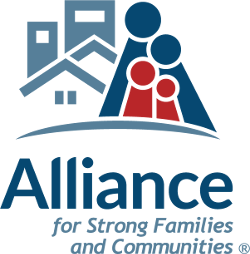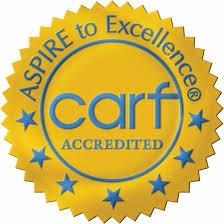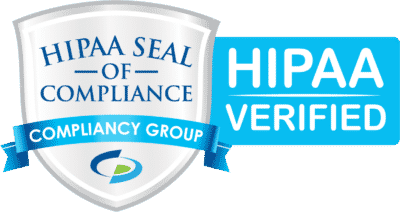Though therapy has long been known as an effective resource in mental health care, the unfortunate reality is that there often remains a stigma associated with reaching out for help. While it’s untrue that seeking therapy is a sign of weakness, the impact of this false narrative is still felt by many – and the impact can be especially hard on veterans. Far from anything resembling a sign of diminished strength, however, deciding to seek therapy is one of the most courageous and empowering steps a person can take.
While outdated stigmas associated with therapy continue to exist, public awareness efforts and increased access to mental health care are changing the tide. Organizations such as the Steven A. Cohen Military Family Clinic at The Up Center works tirelessly to rewrite the narrative while providing the support veterans and their families need to thrive.
Why Does the Stigma Around Therapy Exist?
For those who serve in the military, the ability to endure adversity, make quick decisions under pressure, and remain focused on the task are prized qualities. While the grit and toughness that come with these values are invaluable in service, they can all too often lead to the misconception that asking for help equates to failure.
Even after transitioning to civilian life, this mentality can persist for many. Common fears among veterans are that therapy could:
- Impact their careers, particularly security clearances.
- Lead to judgment from peers or family, especially from others who have served or are serving now.
- Signal they “aren’t tough enough” or that they need special treatment.
It’s important to note that while the stigma may apply only to the veteran, the impact can be felt by everyone in the family – creating cycles of silence that can emotionally wound spouses, children, and other loved ones.
Seeking Therapy is a Strength, Not a Weakness
Seeking therapy isn’t about admitting defeat; it’s a commitment to growth, resilience, and well-being. Just as military training emphasizes mission readiness, mental health counseling & care build emotional readiness and resilience for life’s challenges.
By sharing success stories and emphasizing the tangible results of therapy, veterans and families can help challenge outdated beliefs and inspire others to view mental health care as a regular part of post-service life – a proactive way to care for yourself and ensure a brighter future for your family.
By providing veterans and their families ready access to evidence-based approaches for confronting and overcoming challenges, the Cohen Veterans Network Clinic helps individuals achieve meaningful improvements in mental health, family dynamics, and overall quality of life.
Proven Benefits of Therapy for Veterans and Families:
- Stronger Relationships: Couples and families learn communication and boundary-setting skills, leading to reduced divorce rates and healthier connections.
- Improved Sleep: Nightmares and insomnia are common among PTSD sufferers, but therapy can restore restful, restorative sleep.
- Decreased Substance Use: With support, individuals are less likely to turn to alcohol or drugs to cope with their struggles.
- Higher Productivity: Therapy often leads to fewer sick days due to improved mental clarity and physical health.
- Lower Suicide Risk: Early intervention saves lives, offering hope and practical tools for coping.
Family-Centered Care Matters
Untreated mental health concerns rarely stay confined to one person. When veterans struggle in silence, the effects are often felt throughout their families. Children may experience academic or behavioral difficulties, and partners may find themselves overwhelmed and struggling to cope.
Family-centered therapy models address these dynamics. The Cohen Veterans Network Clinic offers tailored programs for partners, children, and caregivers to build strong support systems that reinforce healing and ensure every household member gains the skills they need to thrive together.
The Cost of Waiting
Postponing care doesn’t just prolong suffering; it can lead to long-term consequences. Mild symptoms left untreated often harden into chronic conditions, such as:
- Physical illnesses linked to prolonged stress.
- Substance use disorders.
- Loss of employment or financial stability.
Early intervention shortens recovery times and reduces long-term medical costs. Prioritizing mental wellness now ensures that veterans and their families avoid these hardships down the road.
A Safe Place for Veterans and Family Members
The Steven A. Cohen Military Family Clinic at The Up Center is leading the charge in making therapy more accessible and less intimidating for military families. The clinic emphasizes a culturally competent approach, with much of its staff familiar with military life and what comes with it.
Features Include:
- Evidence-Based Care: Treatments such as Cognitive Behavioral Therapy (CBT) and Exposure Therapy are tailored to address PTSD, anxiety, and grief.
- Family Support Programs: Counseling for spouses and children is designed to ease transition challenges and strengthen bonds.
- Confidential Telehealth Options: Veterans living outside Hampton Roads can access therapy from the privacy of their homes.
- Case Management: Veterans and their families receive assistance with housing, education, and financial counseling when needed.
- Affordable Care: Most major insurance plans are accepted, and sliding-scale or no-cost care is available to ensure financial concerns don’t become barriers.
The clinic delivers same-day crisis appointments when necessary, ensuring no one feels alone during their most difficult moments.
Final Thoughts
Breaking the stigma around therapy begins with one simple truth: asking for help is one of the bravest things you can do. The Cohen Mental Health Clinic for Military Families provides the judgment-free guidance and support veterans and their families need to thrive. Prioritizing mental health strengthens not just individuals but the entire military community.
If you or a loved one is ready to take the first step, explore the compassionate care available through the Cohen Veterans Clinic. Click here to learn more or schedule your first appointment.














